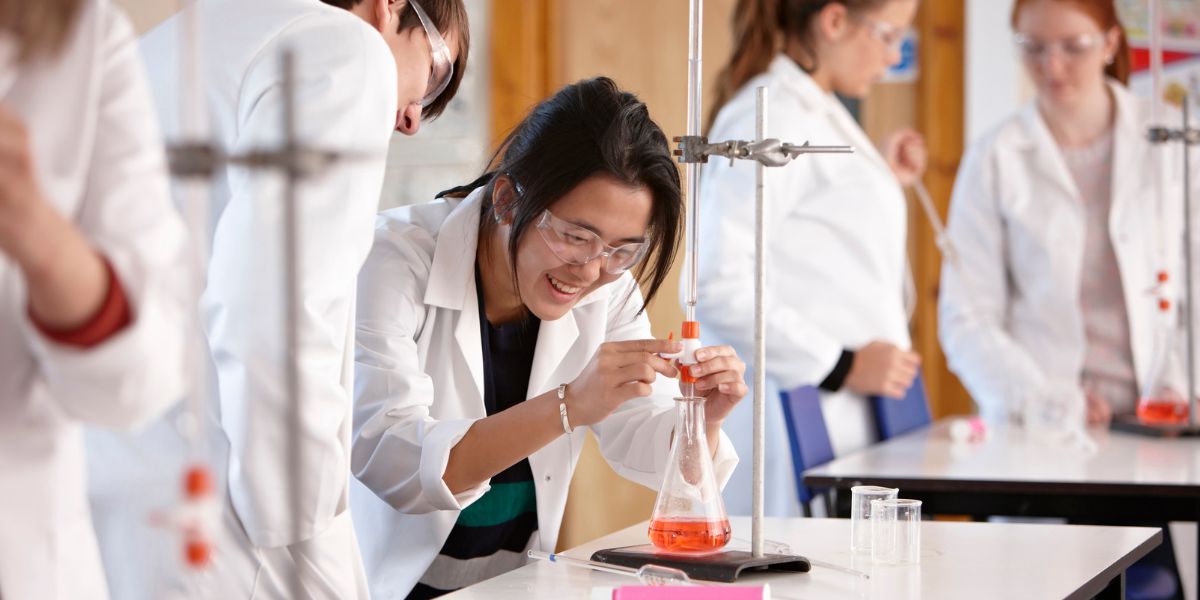
You're ready to conduct basic chemistry experiments, but do you have all the necessary tools at your disposal? From essential glassware for accurate measurements to safety equipment for a secure laboratory environment, each item plays a crucial role in the success of your experiments. But remember, there's more to uncover when it comes to the tools needed for basic chemistry experiments. Keep exploring to ensure you're fully equipped for your scientific endeavors.
Essential Glassware for Experiments
When conducting basic chemistry experiments, you'll frequently need essential glassware to perform various tasks efficiently. Among the crucial pieces of glassware are beakers, which come in various sizes and are used for holding and measuring liquids. Beakers are versatile and can also be used for mixing and heating substances.
Another vital glassware item is the Erlenmeyer flask, which has a conical shape and is ideal for mixing solutions by swirling without the risk of spilling. Test tubes are essential for conducting small-scale reactions or for holding small samples. They're narrow and tall, making them suitable for observing chemical reactions in a confined space.
Graduated cylinders are necessary for precise volume measurements of liquids. They've markings along the side to accurately determine the volume of the liquid they contain. Overall, having these essential glassware items in your laboratory will ensure you can carry out basic chemistry experiments effectively and safely.
Precision Measurement Tools
To ensure accurate measurements in your basic chemistry experiments, utilizing precision measurement tools is imperative. Precision measurement tools such as analytical balances, volumetric glassware like pipettes and burettes, and graduated cylinders are essential for obtaining precise and reliable data in the lab.
Analytical balances are used to measure the mass of substances with high accuracy, crucial for determining the exact amount of a sample used in an experiment. Volumetric glassware, including pipettes and burettes, allows you to measure precise volumes of liquids for reactions or titrations. Graduated cylinders are useful for measuring larger volumes of liquid with good accuracy.
These tools help you avoid errors in your measurements, ensuring the success of your experiments and the validity of your results. Investing in quality precision measurement tools is fundamental for any aspiring chemist looking to conduct experiments with precision and accuracy.
Safety Equipment for Lab Work
Invest in essential safety equipment for your lab work to ensure a secure and controlled experimental environment. The most critical safety equipment includes goggles to protect your eyes from chemical splashes and fumes.
Additionally, wear a lab coat to shield your skin and clothing from potential spills or splatters. Gloves are essential to prevent direct contact with chemicals that could be harmful.
In case of fires, have a fire extinguisher readily available in the lab. An emergency shower and eyewash station are crucial in case of skin contact with corrosive substances or eye exposure to chemicals.
Keep a first aid kit stocked with basic medical supplies in case of minor accidents. It's also important to have a fume hood to contain and ventilate hazardous fumes away from your working area.
Prioritize safety by having these essential pieces of equipment in place before conducting any experiments.
Additional Supplies for Chemical Reactions
Ensure you have all the necessary supplies for chemical reactions to conduct experiments safely and effectively.
In addition to the basic equipment like beakers, test tubes, and a Bunsen burner, there are some additional supplies that are essential for carrying out chemical reactions in the lab.
One crucial item is a stirring rod, which helps mix substances together during reactions.
You'll also need a watch glass to cover beakers or evaporate liquids slowly.
pH paper is vital for determining the acidity or alkalinity of a solution. Litmus paper can also be handy for quick pH assessments.
For accurate measurements, a digital scale is valuable when dealing with small amounts of chemicals.
Lastly, having a dropper or pipette on hand will allow you to add precise quantities of liquids to your reactions.




